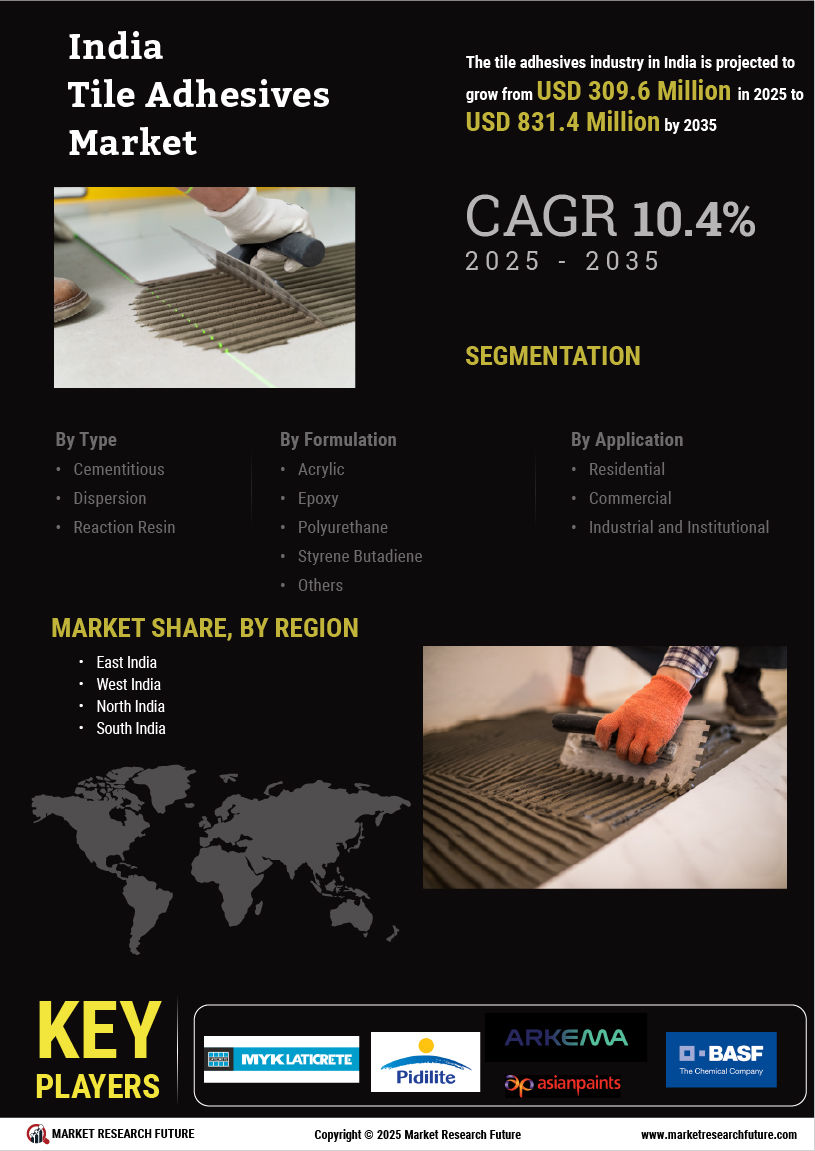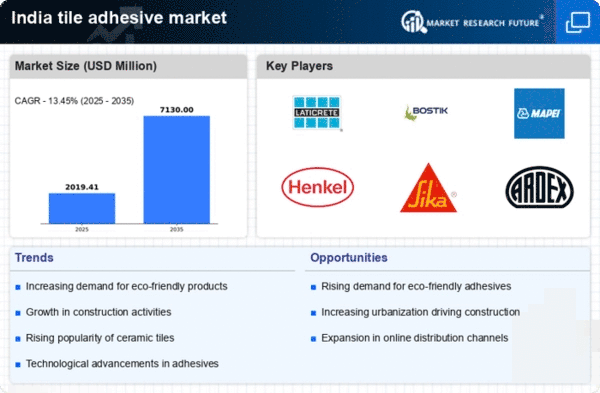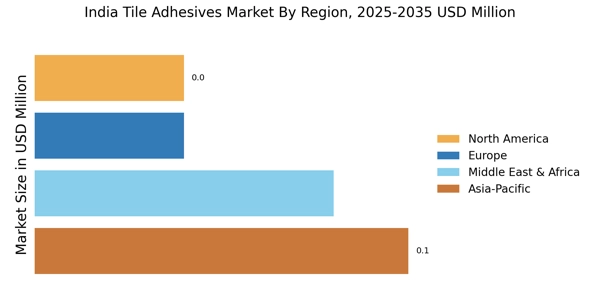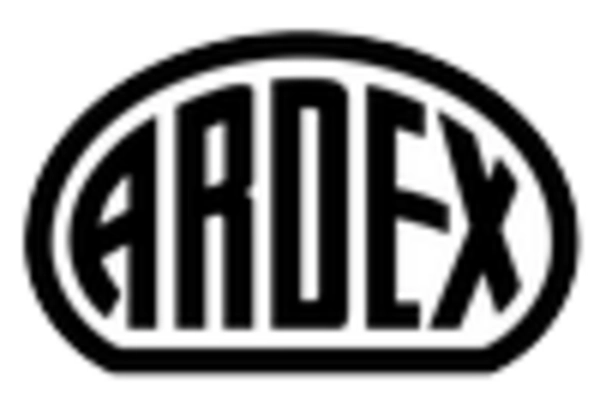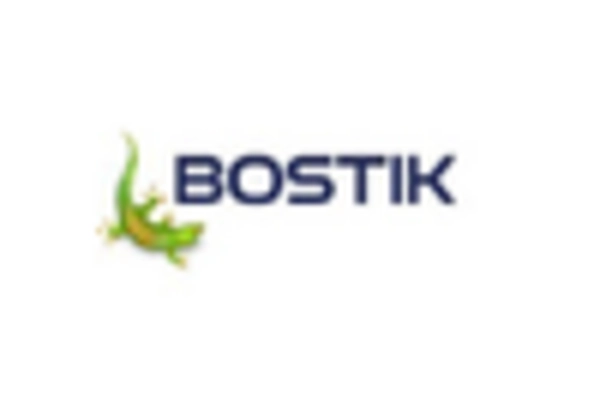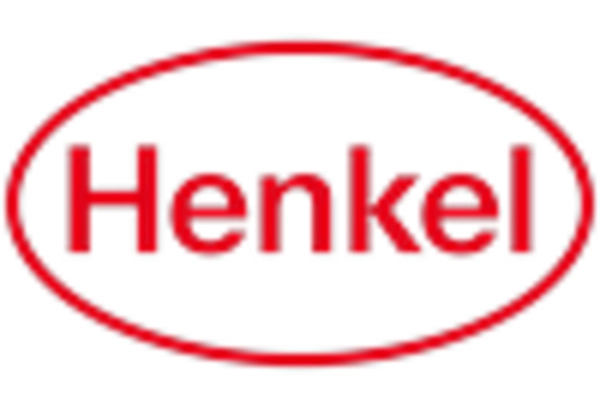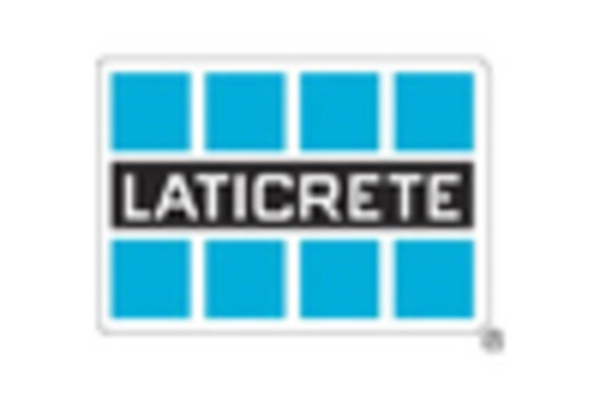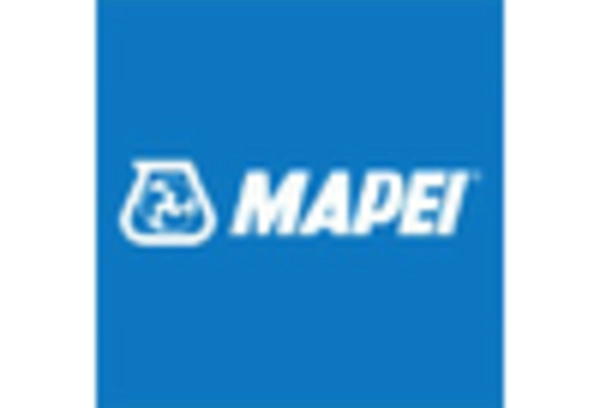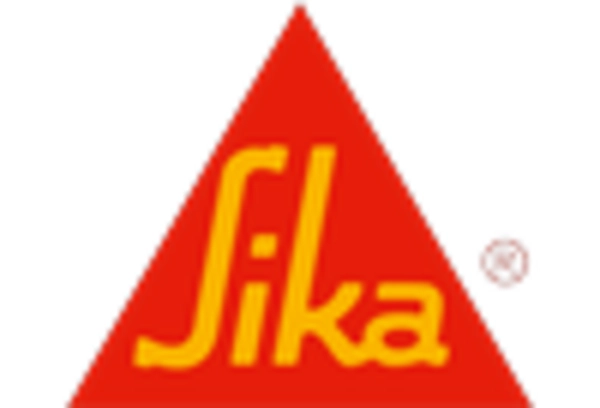Rising Construction Activities
The India Tile Adhesives Market is experiencing a surge in demand due to the rapid growth of construction activities across the country. With the government's emphasis on infrastructure development, including housing projects and commercial buildings, the market is projected to expand significantly. According to recent estimates, the construction sector is expected to grow at a compound annual growth rate (CAGR) of approximately 7.5% over the next few years. This growth is likely to drive the demand for tile adhesives, as they are essential for ensuring durability and aesthetic appeal in various applications. Furthermore, the increasing urbanization and the need for modern housing solutions are contributing to the rising consumption of tile adhesives in the India Tile Adhesives Market.
Growing Demand for Aesthetic Solutions
In the India Tile Adhesives Market, there is a notable shift towards aesthetic solutions in residential and commercial spaces. Consumers are increasingly seeking visually appealing interiors, which has led to a rise in the use of decorative tiles. This trend is further supported by the growing influence of interior design and architecture, where tile adhesives play a crucial role in achieving desired finishes. The market for decorative tiles is projected to grow at a CAGR of around 8% in the coming years, indicating a robust demand for high-quality tile adhesives that can support these products. As a result, manufacturers are focusing on developing innovative adhesive solutions that cater to the aesthetic preferences of consumers, thereby enhancing their market presence.
Technological Innovations in Adhesives
The India Tile Adhesives Market is witnessing a wave of technological innovations that are enhancing the performance and application of tile adhesives. Manufacturers are investing in research and development to create advanced adhesive formulations that offer superior bonding strength, flexibility, and resistance to environmental factors. For instance, the introduction of polymer-modified adhesives has improved the overall performance of tile installations, making them more durable and reliable. This trend is expected to drive market growth, as consumers and contractors increasingly prefer high-performance products. Additionally, the integration of smart technologies in adhesive applications may further revolutionize the industry, providing opportunities for growth and differentiation in the competitive landscape.
Sustainability and Eco-Friendly Products
Sustainability is becoming a pivotal driver in the India Tile Adhesives Market, as consumers and businesses increasingly prioritize eco-friendly products. The demand for sustainable construction materials is on the rise, prompting manufacturers to develop tile adhesives that are low in volatile organic compounds (VOCs) and made from renewable resources. This shift aligns with the broader global trend towards sustainable building practices, which is expected to influence the Indian market significantly. As a result, companies that invest in green technologies and sustainable product lines are likely to gain a competitive edge. The growing awareness of environmental issues among consumers is likely to further propel the demand for eco-friendly tile adhesives, thereby shaping the future of the India Tile Adhesives Market.
Increase in DIY Home Improvement Projects
The India Tile Adhesives Market is benefiting from the rising trend of DIY home improvement projects. As more homeowners take on renovation tasks themselves, the demand for user-friendly tile adhesives is increasing. This trend is particularly prominent among younger consumers who are keen on personalizing their living spaces. The market for DIY products, including tile adhesives, is projected to grow significantly, with estimates suggesting a CAGR of around 6% in the next few years. Manufacturers are responding to this trend by offering easy-to-use adhesive solutions that cater to the needs of DIY enthusiasts. This shift not only expands the customer base but also encourages innovation in product development within the India Tile Adhesives Market.
